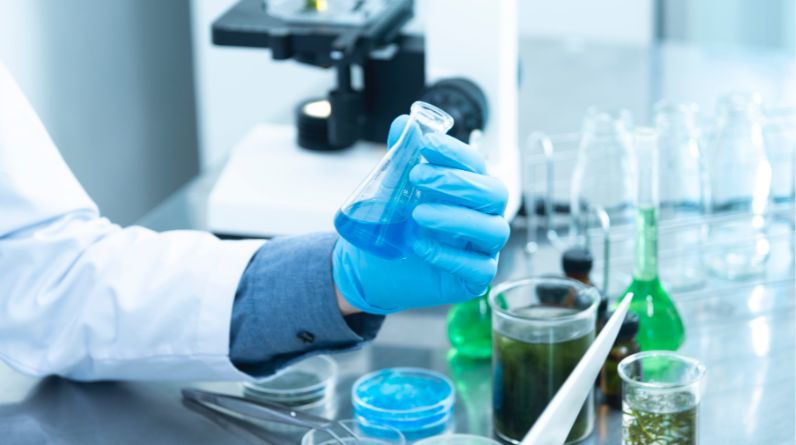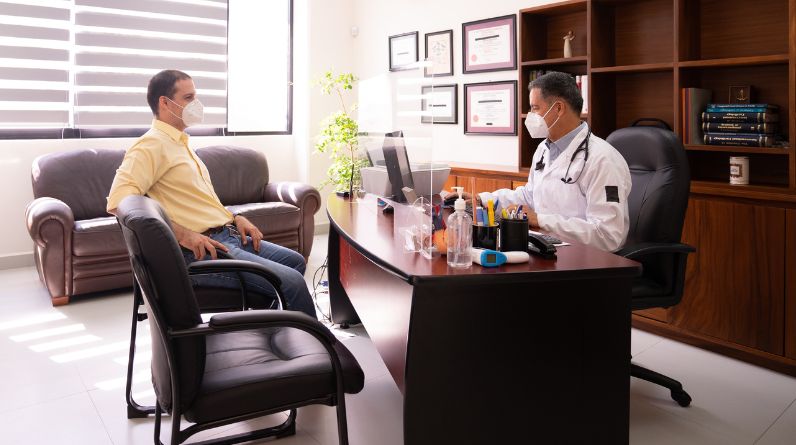The liver, often referred to as the body’s powerhouse, plays a pivotal role in maintaining overall well-being. From filtering toxins to aiding in digestion, this organ is a multitasking marvel. Yet, it’s easy to overlook the liver’s significance until signs of trouble emerge. In this comprehensive guide, we’ll explore practical tips and lifestyle changes to ensure your liver remains in peak condition.
Understanding the Liver’s Role
Before delving into tips for a healthy liver, let’s appreciate the liver’s diverse responsibilities. Nestled beneath the ribcage on the right side, the liver is the largest internal organ. Its functions include:
Detoxification: The liver acts as the body’s primary detoxifying organ. It processes harmful substances, such as toxins and drugs, rendering them less harmful or converting them into water-soluble compounds. These are then excreted from the body, safeguarding it from potential harm.
Metabolism: The liver is a metabolic powerhouse. It plays a central role in the metabolism of various nutrients, including carbohydrates, fats, and proteins. It regulates blood glucose levels, converts excess glucose into glycogen for storage, and releases glucose when needed to maintain energy balance.
Storage: Acting as a storage reservoir, the liver stores essential nutrients. Glycogen, a stored form of glucose, is readily available for energy production. The liver also stores essential vitamins and minerals, releasing them into the bloodstream when the body requires them.
Synthesis: The liver is involved in the synthesis of proteins crucial for blood clotting and other bodily functions. It produces clotting factors that prevent excessive bleeding when injuries occur. Additionally, it synthesizes proteins that contribute to immune function and transport substances in the blood.
Immunity: The liver plays a vital role in the body’s immune system. It removes bacteria and other foreign particles from the bloodstream, preventing the spread of infections. The liver’s reticuloendothelial system actively identifies and eliminates pathogens, contributing to the body’s defense against diseases.
Given its central role in detoxification, metabolism, storage, synthesis, and immunity, maintaining a healthy liver is paramount for overall well-being. Lifestyle choices, dietary habits, and proper medical care all contribute to supporting the liver in carrying out these crucial functions efficiently.
.
Tip 1: Stay Hydrated
Proper hydration is the cornerstone of liver health. Water aids in digestion, helps flush out toxins, and supports metabolic processes. Aim to drink at least 8 glasses (64 ounces) of water daily. Herbal teas and infused water with lemon or mint add variety while contributing to your hydration goals.
Tip 2: Consume a Balanced Diet
A well-balanced diet is vital for liver health. Incorporate a variety of fruits, vegetables, lean proteins, and whole grains. Opt for foods rich in antioxidants, such as berries, spinach, and nuts, to combat oxidative stress in the liver. Reduce intake of processed foods, saturated fats, and excessive sugars, as they burden the liver and contribute to fatty liver disease.
Tip 3: Practice Portion Control
Maintaining a healthy weight is crucial for liver health. Practice portion control to avoid overeating and excessive calorie intake. Obesity increases the risk of non-alcoholic fatty liver disease (NAFLD), a condition linked to poor dietary habits. Adopting mindful eating practices helps regulate portions and supports overall well-being.
Tip 4: Limit Alcohol Consumption
Excessive alcohol intake is a leading cause of liver damage. The liver metabolizes alcohol, and chronic alcohol consumption can lead to inflammation, fatty liver, and more severe conditions like cirrhosis. Practice moderation by adhering to recommended alcohol limits: up to one drink per day for women and up to two drinks per day for men.
Tip 5: Exercise Regularly
Regular physical activity benefits the liver by aiding weight management and improving metabolic function. Aim for at least 150 minutes of moderate-intensity exercise per week. Activities like brisk walking, cycling, or swimming contribute to overall health and support the liver in its metabolic functions.
Tip 6: Prioritize Sleep
Adequate sleep is essential for liver health and overall well-being. During sleep, the body undergoes crucial repair processes, and the liver plays a key role in these nighttime functions. Aim for 7-9 hours of quality sleep each night to support optimal liver function and promote overall health.
Tip 7: Be Mindful of Medications and Supplements
Certain medications and supplements can impact liver health. Always follow recommended dosages, and inform your healthcare provider of all medications and supplements you are taking. Some substances, even over-the-counter pain relievers, can cause liver damage when used excessively or in combination with other medications.
Tip 8: Practice Safe Sex and Hygiene
Certain viruses, such as hepatitis B and C, can pose a risk to liver health. Practice safe sex, use clean needles, and be cautious about body piercings and tattoos to reduce the risk of viral infections. If engaging in activities with potential exposure to blood or bodily fluids, take necessary precautions to protect yourself.
Tip 9: Manage Stress Effectively
Chronic stress can contribute to liver problems. Practice stress-reducing techniques such as meditation, deep breathing, or yoga. These activities not only benefit your mental well-being but also create a positive impact on your liver by reducing inflammation and supporting overall health.
Tip 10: Schedule Regular Check-ups
Regular medical check-ups are crucial for monitoring liver health. Routine blood tests can detect early signs of liver dysfunction. Conditions like hepatitis or liver cirrhosis are more manageable when detected in their early stages. Stay proactive about your health, attend regular check-ups, and discuss any concerns with your healthcare provider.
Conclusion
Incorporating these tips into your lifestyle fosters a lifetime of liver care. The liver’s resilience is remarkable, and simple, mindful choices contribute to its well-being. By staying hydrated, nourishing your body with a balanced diet, and adopting healthy habits, you empower your liver to carry out its myriad functions efficiently. Remember, a healthy liver is not just a reflection of your diet; it’s a testament to your overall commitment to well-being.
Frequently Asked Questions
1. Why is the liver essential for overall health?
The liver is a metabolic powerhouse responsible for detoxifying harmful substances, metabolizing nutrients, storing essential vitamins and glycogen, synthesizing vital proteins, and contributing to immune function. Its comprehensive role makes it indispensable for maintaining overall health and well-being, affecting various bodily functions.
2. How can I support liver detoxification naturally?
Natural liver detoxification involves adopting a lifestyle that supports liver health. Consuming a nutrient-rich diet with plenty of fruits, vegetables, and antioxidants aids the liver in processing toxins. Staying adequately hydrated and limiting alcohol intake are crucial, along with incorporating liver-friendly foods known for their detoxifying properties.
3. What impact does diet have on liver health?
Diet plays a pivotal role in liver health. A balanced and nutritious diet supports optimal liver function. Foods rich in antioxidants, such as berries and leafy greens, help combat oxidative stress. Adequate fiber intake aids digestion, while minimizing processed foods and saturated fats reduces the strain on the liver.
4. Is regular exercise beneficial for liver health?
Regular exercise contributes significantly to liver health. Physical activity helps in weight management, reducing the risk of non-alcoholic fatty liver disease (NAFLD). Exercise also enhances insulin sensitivity, lowers inflammation, and improves overall metabolic function, all of which positively impact the liver.
5. How does excessive alcohol consumption affect the liver?
Excessive alcohol consumption overwhelms the liver’s detoxification capacity, leading to alcoholic liver diseases. It causes fatty liver, alcoholic hepatitis, and in severe cases, cirrhosis. The liver’s ability to process alcohol is finite, and chronic excess can result in inflammation, scarring, and impaired liver function.
6. Can certain medications impact liver health?
Some medications, when misused or taken in excess, can have hepatotoxic effects, causing liver damage. It’s crucial to follow prescribed dosages, be aware of potential side effects, and consult healthcare professionals if concerned about a medication’s impact on liver health.
7. What role does hydration play in liver health?
Proper hydration is essential for liver health. Water aids in digestion, nutrient absorption, and the elimination of waste products. It supports the liver’s detoxification processes by ensuring efficient removal of toxins. Dehydration can compromise these functions, emphasizing the importance of staying well-hydrated.
8. How can one maintain a healthy weight for optimal liver health?
Maintaining a healthy weight involves adopting a balanced diet with appropriate portion sizes and engaging in regular physical activity. Excess body weight, especially abdominal fat, is a risk factor for fatty liver disease. Healthy weight management reduces this risk and supports the liver’s metabolic functions.
9. Are there specific foods that promote liver health?
Several foods promote liver health. Leafy greens, such as spinach and kale, are rich in antioxidants and nutrients beneficial for liver function. Fruits like berries provide vitamins and antioxidants. Fatty fish, nuts, and whole grains contribute essential nutrients that support the liver’s metabolic processes and overall well-being.
10. When should one seek professional guidance for liver health?
Professional guidance is essential if experiencing persistent symptoms indicative of liver issues, such as abdominal pain, jaundice, or unexplained weight loss. Individuals with pre-existing liver conditions, like viral hepatitis or cirrhosis, should regularly consult healthcare providers for ongoing liver management and monitoring. Regular check-ups and open communication with healthcare professionals contribute to optimal liver health and early detection of potential issues.






